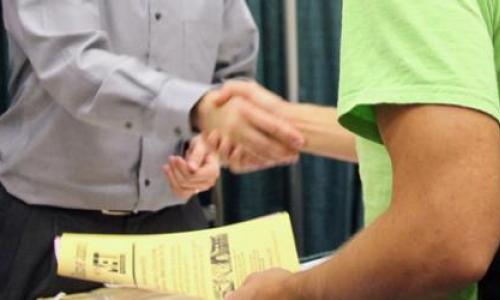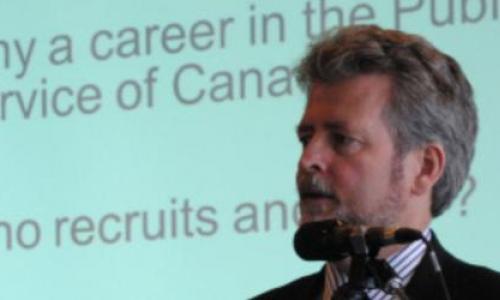
Learn how those years of recreational sports can help you land the job of your dreams!
Ever since I was four years old and could toddle with a soccer ball, sports have been a huge part of my life. As a life-long athlete, I know first-hand of the amazing benefits of joining a sports team-everything from keeping fit despite a hectic workweek to making great friendships that last long after you leave the field. However, there may be one benefit of playing sports that just might surprise you: it can actually help you get the job of your dreams.
But before we get too far ahead of ourselves, there are a few things you have to do before that corner office overlooking the Pacific is yours. Send off your resume? Check. Get your references in order? Check. Get yourself a killer interview outfit? Check. There’s only one more piece to the puzzle: in order to land your dream job you have to get through the interview process in one piece.
As a self-proclaimed hater of interviews, I’ve tried almost every method under the sun to calm my nerves before a big interview (yes, I’m that person in the women’s bathroom doing the ‘power stance’ and listening to Amy Cuddy’s TED talk). The best advice I ever received for dealing with interview stress is to come prepared with a few experiences or situations that you could use for a multitude of questions. Thus, without further ado, here are the top 5 reasons why having sports in your back pocket will help you wow your interviewer.
1. Show You Work Well in a Team
“Name an instance where you proved you could work well in a team environment.”
You can quit your long pause filled with ‘umm-ing’- mentioning playing sports is a great way to answer this question. Most sports are played in teams (even individual sports like figure skating and wrestling have coaches and other teammates who compete individually but work in a team). Victories often require a team effort and that short Rudy-esque story of leading your team to victory is guaranteed to impress your interviewer.
2. Show You Can Perform Under Pressure
“Our office is very fast-paced and there is a lot of pressure to get things done on time. Can you name an instance where you worked well under pressure?”
Well, yes, yes I can. There’s no shortage of pressure when it comes to playing sports- everything from that 0-0 championship game with 2 minutes left to having to take an overtime penalty shot to save your team from being eliminated in a tournament. You probably don’t have to think too hard to find your stressful sports memory because they tend to be the ones that stay with you years later. And after a line of people answering the question with “I once had a lot of exams,” this is sure to excite (and possibly wake up) your interviewers.
3. Demonstrate Long-Term Commitment
“We are looking for a new member of the company family, not just a short-term employee. Can you describe a time where you showed long-term commitment?”
A lot of people were put into sports as kids (my parents, being the over-achieving type, put their twin daughters in four different sports at once). When I answer this question by saying that I have played soccer on a recreational team since I was 4 years-old, despite managing a university schedule and working part-time, interviewers are all-smiles.
4. Prove That You Are a Well-Rounded Person
“Tell me about yourself.”
On the interviewer’s side, this question is probably one of the most telling. If the only thing you want to tell me (the interviewer) about yourself is where you go to school, you might not come across as the person I want to sit beside for 8 plus hours a day, 5 days a week. Mentioning sports (as well as other leisurely activities or hobbies) can make you seem like a well-rounded human, instead of an interview-going machine.
5. Give the Interviewer Something to Talk About
There’s a certain interview sweet-spot that most of us know well- that moment when an interviewer doesn’t seem like they are just reading questions off a sheet but instead are having a real conversation with you, laughing at your stories, and asking questions that don’t particularly matter in their interview process. In short, they’re engaged. In my own experiences, mentioning sports has been a way of connecting with interviewers on a personal level. After mentioning sports as an answer for one of the interview questions, more often than not, an interviewer will tell me that either they, their son, or the great uncle’s nephew’s cousin plays that sport and we begin taking about shared experiences and may, in fact, enter that coveted sweet-spot.
Overall, mentioning sports in an interview is a great way to answer some of the tough interview questions that stump us all at one point or another. Who knows, it just might be the tool in your interview arsenal that makes you stand out in amongst the dozens of other applicants. Now go out, play a sport, and claim that corner office!
Beyond the Blog
-
Amy Cuddy's TED talk - Your body language shapes who you are












